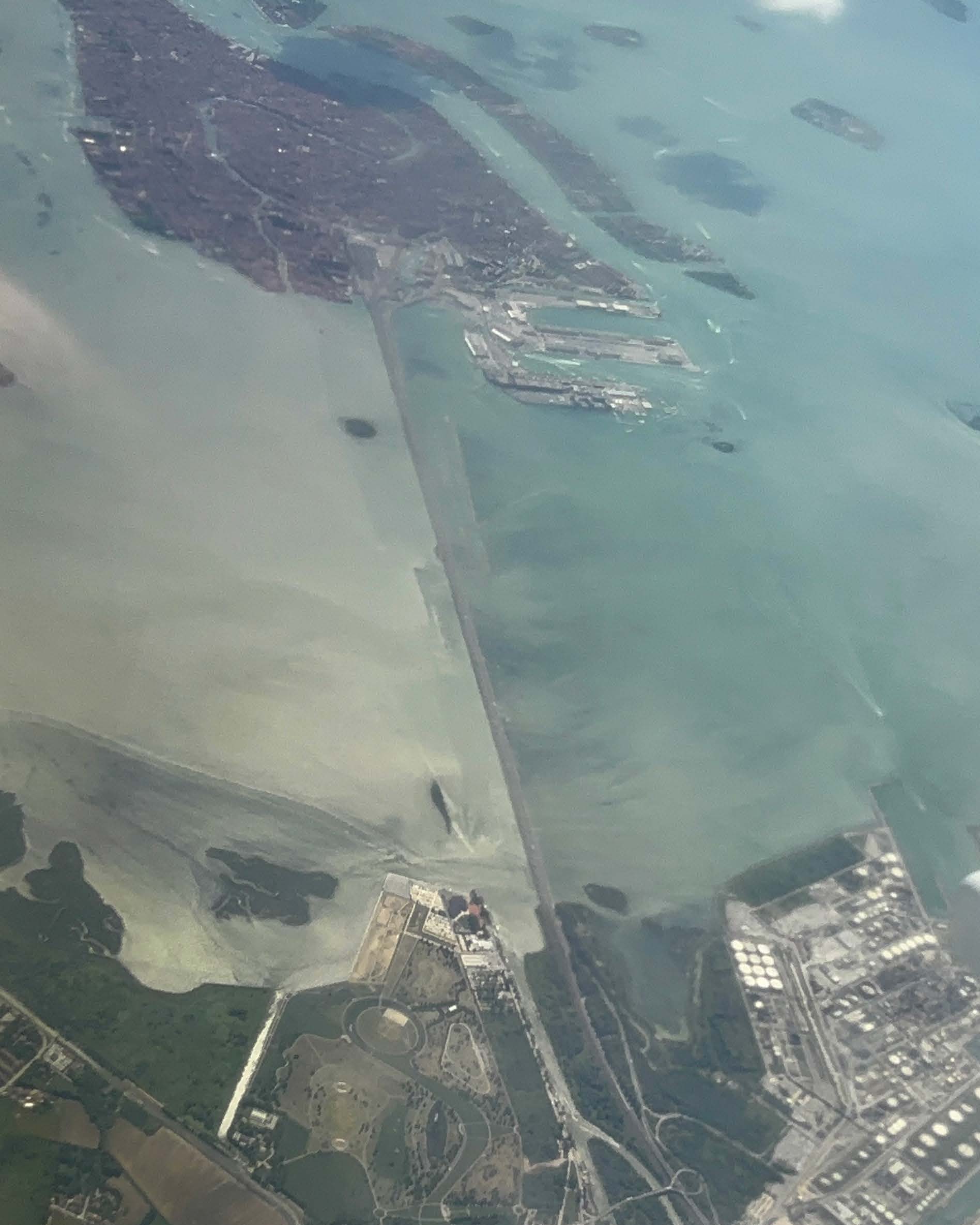

Downloads
DOI:
https://doi.org/10.58981/bluepapers.2025.1.01Published
Issue
Section
License
Copyright (c) 2025 Carola Hein

This work is licensed under a Creative Commons Attribution 4.0 International License.
How to Cite
Keywords:
PortCityFutures, port city territories, value case approach, Water systems design, adaptive strategiesAbstract
Designing water systems – interconnected networks of water-related structures and practices – is not only a matter of technology and economics, but also of history, institutions and culture. Understanding these multiple, overlapping and interconnected spaces and practices requires a holistic approach that contextualizes current projects and helps identify challenges and opportunities. The article introduces a value case approach, including tools and methods that can be used to connect spatial, social and cultural conditions and their change over time. Such comprehensive understanding can potentially be used to facilitate societal change and guide political decision-making. The article first explores the rationale and setup of a value-case approach in the context of the PortCityFutures Center and the work of the UNESCO Chair Water, Ports and Historic Cities. It concludes by introducing key elements and methodological tools.
References
Appadurai, Arjun 1990. “Disjuncture and Difference in the Global Cultural Economy.” Theory, Culture & Society 7, no. 2-3: 295–310. https://doi.org/10.1177/026327690007002017
Beutell, N. J. . 2018. “Values-Based Management Theory.” In Encyclopedia of Business and Professional Ethics, edited by Deborah C. Poff and Alex C. Michalos. Springer.
D’Agostino, Matteo, and Carola Hein. 2024. “Design-Based Solutions for Water Challenges: The Value Case Approach.” Blue Papers 3, no. 1: 80–89. https://doi.org/10.58981/bluepapers.2024.1.06.
Dittrich, Koen, and Wolfje van Dijk. 2013. The Value Case Methodology. A Methodology Aligning Financial and Non-Financial Values in Large Multi-Stakeholder Innovation Projects. https://doi.org/10.13140/2.1.3043.4247.
Friedman, Batya, and David G. Hendry. 2019. Value Sensitive Design: Shaping Technology with Moral Imagination. MIT Press. https://doi.org/10.7551/mitpress/7585.001.0001.
Gibson, James J. 1979. “The Theory of Affordances.” In The Ecological Approach to Visual Perception, 119–37. Taylor & Francis.
Hein, Carola 2016. “Port Cities and Urban Waterfronts: How Localized Planning Ignores Water as a Connector. WIREs Water 3: 419–38.
Hein, Carola 2018. “Oil Spaces: The Global Petroleumscape in the Rotterdam/The Hague Area.” Journal of Urban History 44, no. 5: 887–929. https://doi.org/DOI: 10.1177/0096144217752460.
Hein, Carola 2019a. “The Port Cityscape: Spatial and Institutional Approaches to Port City Relationships.” PortusPlus 8. https://portusplus.org/index.php/pp/article/view/190.
Hein, Carola. 2019b. “Port-City-Regions in a Time of Transitions: Value Deliberation on Port City Futures.” Portus Online. https://portusonline.org/port-city-regions-in-a-time-of-transitions-value-deliberation-on-port-city-futures/?pdf=22420.
Hein, Carola. 2022. “Water, Culture and the SDGs as Living History.” Blue Papers 1, no. 1: 13–3.
Hein, Carola. 2023. “Toward a Research and Action Agenda on Water and Heritage? A First Attempt at Refining Terminologies, Concepts and Priorities.” Blue Papers 2, no. 2: 22–33.
Hein, Carola, Ingrid Mulder and Reinhilde Sennema. 2021. “A Call for Value Literacy in Port City Transitions.” European Journal of Creative Practices in Cities and Landscapes 4, no. 2: 108–29. 10.6092/issn.2612-0496/12393.
Hein, Carola, Matteo D’Agostino, Carlien Donkor, Queenie Lin and Hilde Sennema. 2022. “Capturing Water, Culture and Heritage through Icons: A First Attempt.” Blue Papers 1 (1): 1–3. https://doi.org/10.58981/bluepapers.2022.1.wcht.
Hein, Carola, Matteo D’Agostino, Carlien Donkor, Queenie Lin, Zuzanna Sliwinska and Julia Korpacka. 2023. “Living with Water: Bringing Back Human-Water Relationships.” Blue Papers 2 (2): 6–11. https://bluepapers.nl/index.php/bp/article/view/69.
Hofstede, Geert. 2001. Culture’s Consequences: Comparing Values, Behaviors, Institutions, and Organizations across Nations. Sage.
Lefebvre, Henri 1974. The Production of Space/La production de l’espace. Editions Anthropos.
Linton, Jamie. 2013. “Modern Water and its Discontents: A History of Hydrosocial Renewal.” WIREs Water. https://doi.org/10.1002/wat2.1009.
Luiten, Eric, and Léa Kayrouz. 2024. “The New Dutch Water Defense Line (Nieuwe Waterlinie): Preserving Historical Qualities in a Context of Very High Spatial Pressure.” Blue Papers 3, no. 1: 140–151. https://doi.org/10.58981/bluepapers.2024.1.11.
Manzione, Rodrigo Lilla. 2024. “From Landmarks to Watermarks: Water Towers as Hidden Signs of Water through the Value Case of Ourinhos, Brazil.” Blue Papers 3, no. 1: 152–163. https://doi.org/10.58981/bluepapers.2024.1.12.
Ritvala, Tiina, and Asta Salmi. 2010. “Value-Based Network Mobilization: A Case Study of Modern Environmental Networkers. Industrial Marketing Management 39, no. 6: 898–907.
Seidensticker, Edward. 1991. Low City, High City. Tokyo from Edo to the Earthquake: How the Shogun’s Ancient Capital Became a Great Modern City, 1867–1923. Harvard University Press.
Steinert, Steffen. 2023. “Anthropology and Value.” In Interdisciplinary Value Theory, 51–65. Springer Nature. https://doi.org/10.1007/978-3-031-10733-7_4.
Stephenson, J. 2008. “The Cultural Values Model: An Integrated Approach to Values in Landscapes. Landscape and Urban Planning 84, no. 2: 127–39.
Tulder, Rob van, and Eveline van Mil. 2023. Principles of Sustainable Business. Routledge.


